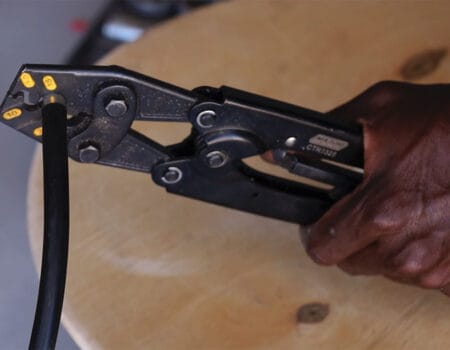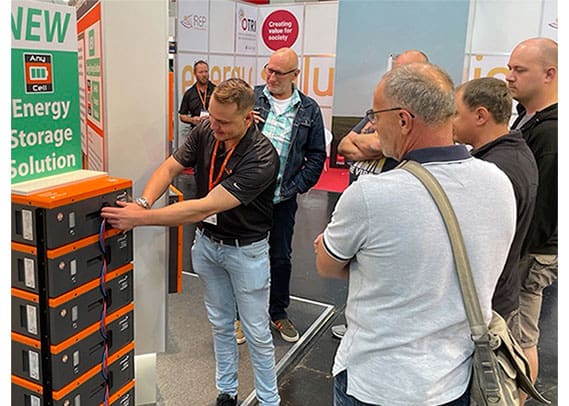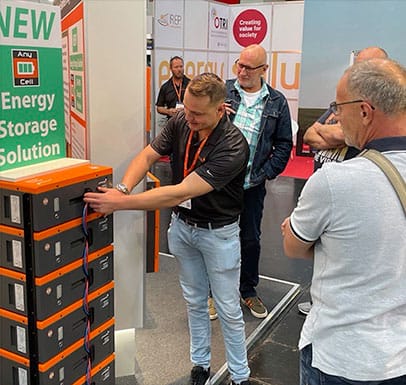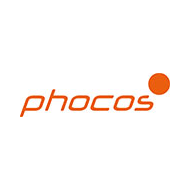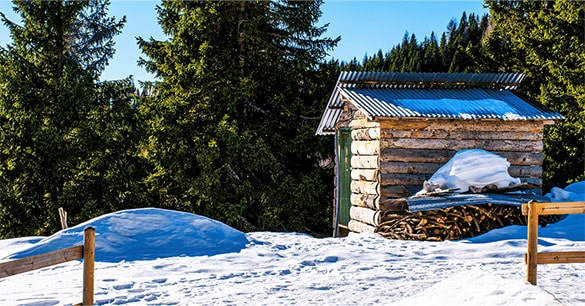
Question: Can I run my DC freezer or refrigerator in below freezing ambient temperatures?
Often the Phocos team is asked this question as more and more people are seeking energy independence in varying climates globally. The push to live off the grid or achieve stable power is stronger than ever in current conditions. We outline considerations below, as the answer ultimately depends on your climate conditions and your outbuilding’s design.
Common uninsulated outbuildings and alternative spaces
Examples:
-Unheated barn
-Screened in porch
-Shed
-free-standing garage
-carport/patio/dock/winterized
What to be aware of: The oil in the DC compressor gets cold and thicker as the temperature goes down, so it takes more energy to start the compressor. If a minimum motor speed cannot be achieved, the unit will error out and stop working for a short period of time. It will try to restart automatically at different intervals over a short period of shut down. If the restart fails, the result could be the unit will not attempt to start again, requiring a manual reboot from the power source. One of the benefits of solar Off-Grid applications is maintenance-free operation, and it is important to manage the ambient temperature to prevent the compressor from experiencing below freezing temperatures, so your appliance will provide years of maintenance-free operation.
Solution: If you are in a climate that experiences below freezing ambient temperatures, it is important to take simple measure to be proactive, ensuring your DC chest refrigerator/freezer has trouble free operation.
Common Best Practices
- Place the appliance in a clean area.
- It is important to have an environment free of rodents and other critter who can nest or chew on wiring.
- Be sure the appliance is not subject to direct air current.
- In these types of uninsulated structures, you can use fiberglass insulation or something comparable, and place around the compressor and exposed lines inside the compressor compartment. Note: Never place insulation or blankets around the outside of the appliance, as that will make the unit less effective and less efficient.
Common insulated outbuildings and alternative spaces
Examples:
-Shed
-Free-standing garage
-RV/Boat
-unheated, vacant dwelling (vacation home/cabin) *
It is safe to assume, in most climates, in an insulated structure, the DC appliance would not be subject to below freezing temperatures. However, if circumstances arise and there is a chance that even an insulated building will be subject to extremely low temperatures, please follow the instructions noted above for ‘uninsulated’ structures.
*If the dwelling where the appliance is located is going to be vacant for a long period of time during potential below freezing conditions, then the unit should be disconnected from power with all food removed. This will ensure when the appliance is put in use again, there will be no potential risk of unsafe food storage.
Weather conditions vary seasonally, and customer needs can change over time. By understanding when and where consumers are using a quality DC refrigeration appliance, all can prepare for below freezing ambient temperatures using the tips listed here. The experts at Phocos want to ensure the Off-Grid and edge-of-grid communities are prepared, to ensure uninterrupted DC appliance operation and avoid costly food waste.
Would you like more information about the high quality and efficient DC refrigerator/freezers Phocos offers? Click here.
More DC refrigeration troubleshooting videos can be found here.
